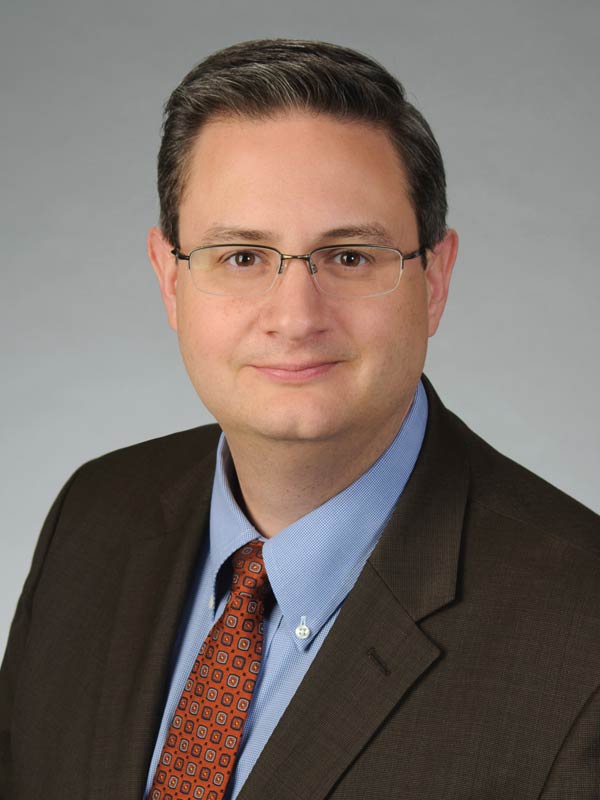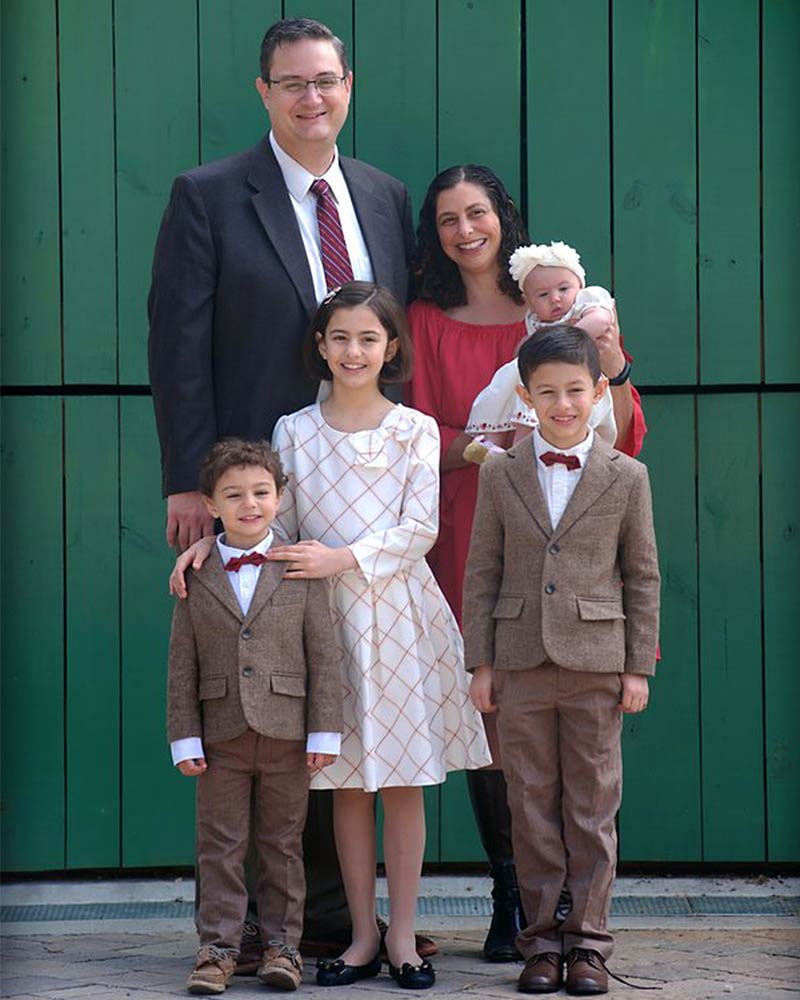Given that my guest, John Satelmajer, holds a respected position at one of the world’s largest financial companies, PricewaterhouseCoopers, I expected him to say that he attended the best schools. In a way, he did. Which ones? What shaped his success in life? That is the subject of our discussion.
AB: Welcome! As you know, we also had your father on the show. This is the first time I’ve interviewed both a father and his son.
JS: I’m glad to be part of this milestone.
AB: Knowing your parents, I’m particularly interested to hear about your family memories.
JS: We were a family of six. I was the youngest and the only boy. I grew up in a farming area in upstate New York. There were almost as many cows as people in that village.
AB: What spiritual influences did you experience growing up?
JS: I remember my paternal grandmother, with whom we would pray every time we stayed overnight at her house.
AB: I remember she was originally from Yugoslavia.
JS: Yes, indeed. I used to visit my grandparents with my sister, who was two years older than me. When we prayed before going to bed, we would always ask our grandmother to pray in Serbo-Croatian. We didn’t understand it, as we had only learnt a few simple words. I don’t know why, but we would listen very quietly and enjoy the sound of the language. There was something moving about the natural way she prayed in her native language.

AB: Since you were in the countryside, did you work in the garden? Why are you laughing?
JS: I hope my sisters aren’t watching! Our yard was about 6,000 square metres. The garden was about 1,000 square metres. It was huge! Maybe it wasn’t actually that big, but it certainly seemed that way to me at the time. We had rows and rows of corn, beans, and everything. As children, we were responsible for weeding, watering, and taking care of the garden. These activities were part of our lives.
AB: When you have four children, you have to feed them, and this was the most economical option. Why did you say you hoped your sisters weren’t watching the show?
JS: Because I was always complaining. When it was time to pull weeds, for example, I was told to start early in the morning because it was cooler. But I played first. Since I had to do my job, I would go to the garden at around two o’clock and complain about how hot it was, and how many flies there were. The girls would sit on the porch, drinking cold lemonade, and laughing at me while I worked hard. There was a lot of work, and I complained a lot. Ironically, I now have my own garden.
AB: I think your attitude towards manual labour has changed over time.
I actually worked throughout my entire schooling. At primary school, I used to mow my neighbours’ lawns. At the Adventurer Club, we raised funds by selling brooms. There was a broom factory on campus.
AB: You sold brooms! That reminds me of my childhood. There used to be street vendors who went from door to door with a large bundle of brooms on their backs.
JS: We only carried one as a sample. We would then deliver the brooms to anyone who was interested. I had two jobs in high school. I worked in the warehouse at the Adventist book centre. I stacked vegetarian products in the cold room. I worked there throughout my four years of high school. I also worked in the school’s greenhouse, doing landscaping work. The school had built the greenhouse. It sold products too. People could come and buy plants, and flowers. I did that for all four years.
AB: Was that your choice, or did you have to work there? What was in your heart at the time?
JS: I was told that was how things were done at my high school, at least as far as working at the greenhouse was concerned. It was my way of paying for my tuition fees. My sisters had jobs at the school too. As the youngest child, I thought it was normal. I didn’t think about it too much.
I used some of the money I earned to pay my fees, and put the rest in the bank to buy what I needed. I didn’t really enjoy studying. However, work helped me to put what I was learning into practice. This made me enjoy school more.
AB: Do you think that this experience shaped you for later life?
JS: I think so. What you learn in class is only one aspect of learning. Sometimes, classroom theory doesn’t really sink in. But when you go out into the real world, you start to understand.
I think that experience shaped me in the sense that I developed a strong work ethic. At school, you study subjects like algebra, and the exact sciences. When you finish school and start working, if you’ve worked during your studies, your CV will already have some work experience on it. I look at my students’ CVs now. Some have outstanding academic results, but no work experience whatsoever. You can’t help but be a little reluctant to hire them. You wonder if they are used to working, if they know what it means to have a superior, and how to behave at work. When you see a balanced CV with good grades, and work experience, you know that these young people have been tested in some way.
AB: Do today’s students have the same job opportunities during their studies?
JS: In many church schools, yes. Overall, however, the trend is negative. Care must be taken to ensure that such economic activities on campuses do not operate at a loss. Unfortunately, many of these businesses have gone bankrupt over time. Students often look for work outside the campus, in local grocery stores, and so on.
These activities are no longer prioritised and are considered unnecessary. Students can pay their fees without having to work. However, some students are returning to this practice and consider it important. It remains to be seen whether it will become commonplace again. In Adventist education, there has been a resurgence of the idea that all work is important, whether office-based or physical labour.
AB: Thinking back to my childhood, this aspect is interesting to me. At that time, at least in my perception, there was a divide between manual labour and intellectual work. We were told that we had to study, otherwise we would have to work!
JS: Interesting! I was taught that you have to work in order to learn.
AB: It was unthinkable for a child to be asked to work during term time. School was considered their main activity. We’re talking about completely different mentalities here. I hope we will realise that activity and real work during school are very important. We absorb a lot of information at school, but we forget it after exams because we don’t see its connection to real life. However, as you said, when we need to apply the information, it stays with us, perhaps forever. In the interview, your father didn’t mention that your family had adopted other children.
J.S.: When I was a child, other children would come to our house all the time. Ana was always there, too. I think she moved in with us when she was about twelve. She came from a big family in Puerto Rico. She went to high school and then to college. We still keep in touch. Russell moved in with us during his time at high school. Tanique also moved in with us during her time at high school. Her mother had died, so she came to live with us. She was a very good friend of one of my sisters.
We still keep in touch at Christmas, and on other occasions. I’ve met their children. We consider them all part of our family. More recently, there’s Jidong, who is from China. My parents met his family when they were in China. He came to America to attend high school and college. He’s now getting his doctorate in music. As I said, I grew up with different children in the house all the time. It seemed normal to me.
AB: Do you think that influenced your perspective on life, and on people from other cultures, and races?
JS: I’m sure it did. When you’re growing up, you’re not aware of it. I remember when Ana went to visit her family in Puerto Rico. When she came back, she brought us some avocados. My father was very excited about them. It was the 1980s and avocados were rare in America back then. I remember how excited we all were. We experienced many new things—new foods, conversations and insights into different lifestyles. If one of them struggled at school, couldn’t pay their Adventist school fees, or had family problems and came to live with us, my parents helped them to continue their Adventist education, even when it seemed impossible. This showed me the importance of education and the Adventist way of life.
AB: Let’s go back to the school where you studied. You once told me that it only had two classrooms. That means several grades were in the same room. What memories do you have? How do you view it now? It seems quite strange.
JS: I know. Let me explain why it was like that. I went to a small school with 40–42 pupils at most. That seemed like a lot to me. Grades 1–4 were in one classroom and grades 5–8 in another, with two different teachers. I didn’t know any different. It was only when I moved to Canada that I saw each grade had its own classroom with 22 students. I found this strange. The whole school had around 150 pupils. That’s when I realised how small my school had been.
When you’re in seventh grade, you look up to the eighth graders. But if you’re in the same classroom as them, you can hear what they’re learning. Sometimes, the teacher can’t answer all the questions straight away. In a room with several grades, though, you can ask someone in eighth grade for help because they’ve already learned those things. At other times, you can help the sixth graders. This helps you to develop leadership skills and to support others. A spirit of cooperation develops. There are many major benefits.
In my view, whatever situation you find yourself in, it’s up to you to make the most of it. I come from a very small school, and many would say that I had no chance of succeeding. My wife went to school in New York. Despite growing up in a very violent environment, she ended up being successful. She became a lawyer.
The education she received in New York and the education I received in a rural area are at opposite ends of the spectrum. Yet we both had valuable spiritual experiences and were successful. At the same time, I know that not everyone was successful.
AB: You’ve touched on an interesting point. You’re not doomed to failure anywhere.
JS: God takes care of everyone, everywhere, and at every point in history. As long as you’re willing to do your part.
AB: You have a distinguished career in finance, but you’re also involved in education. As a volunteer, you play a key role in running our Atlanta North church school. Why did you get involved? I imagine your job keeps you busy, and you have four children.
JS: I don’t know exactly why. It just came naturally. My mother was a teacher. I only attended Adventist schools. I really enjoyed my time at university. I was willing to help out at our schools. People asked me to help with various activities, and I was happy to do so. Over time, helping out became a natural part of my life. Overall, I had a positive experience with Adventist education. I dislike seeing a church school close. If I can do something to help, why not?
I also have a personal interest. My children attend an Adventist school. I want them to progress and receive the best education possible in an Adventist environment.

AB: You obviously believe strongly in Adventist education. You experienced it yourself and sent your children to church schools. But what do you think about public education?
JS: Adventist education cannot serve all families. There are many students in public schools. I am part of an organisation that seeks to improve leadership in the public school system. The idea is that by improving school leadership, we can help improve student performance. We organise annual camps where we train teachers and principals to become more effective leaders, who can then help their students. This helps to make the community a better place as a whole.
We also invite teachers with the potential to become future leaders. They can develop their skills, learn to manage their classrooms more effectively, and help their students to improve.
AB: It is easy to criticise schools, both public and church-run. I admire the fact that you have chosen to use your resources and experience to improve the quality of education wherever children are shaping their futures. May God give you the joy of doing useful work!














